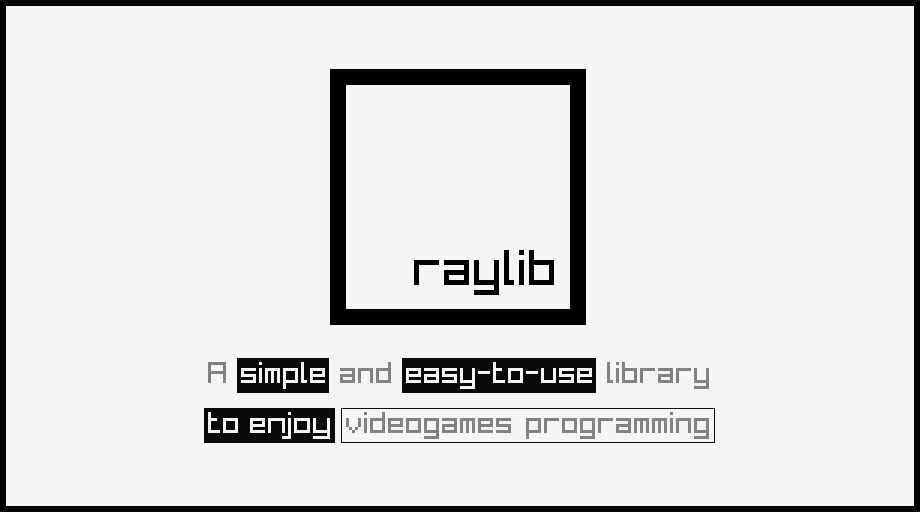The Rise of Minimalist Gaming: Flappy Bird and Tux-vs-Mutant-Window
September 22, 2024, 4:13 am

Location: United States, California, San Francisco
Employees: 1001-5000
Founded date: 2008
Total raised: $350M
In the world of gaming, less is often more. The recent emergence of minimalist games like Flappy Bird and Tux-vs-Mutant-Window showcases a trend that defies the norm. These games, crafted with precision and creativity, challenge the notion that bigger is better. They remind us that simplicity can be powerful.
Flappy Bird, a game that took the world by storm in 2013, has seen a resurgence in a new form. A developer recently created a version of Flappy Bird using C for Android, with an astonishing APK size of just 92 kilobytes. This feat is not just about nostalgia; it’s a testament to the developer's determination and ingenuity. The journey began in 2021, when the developer stumbled upon a repository that sparked the idea of creating a lightweight game. The goal was clear: a game that was simple, yet engaging, with a file size that would fit in a digital pocket.
The initial attempts were fraught with challenges. The first version, built using C++, was a cumbersome 1 megabyte. It crashed frequently and lacked the essential libraries required by modern Android devices. The project was a mess, and the developer faced a daunting task. Yet, the idea lingered. Fast forward to September 2024, and inspiration struck again. A fellow developer had successfully created a Flappy Bird clone in C#. This reignited the spark. The challenge was set: create a Flappy Bird clone in C, with an APK size under 100 kilobytes.
The developer embraced the challenge with a systematic approach. They crafted a batch script to automate the compilation process, ensuring efficiency. Every byte counted. The analysis revealed that media files were the primary culprits behind the bloated size. The quest for lightweight libraries began. After exploring various options, the developer settled on OpenGL ES 2.0 for graphics and OpenSLES for sound. These choices were pivotal, allowing for a streamlined experience without sacrificing quality.
The sound implementation was particularly innovative. Instead of relying on heavy libraries, the developer utilized OpenSLES, which handled both decoding and playback. This dual functionality was crucial in keeping the APK size down. The result was a game that not only played well but also sounded great. The graphics were handled using UPNG, a lightweight PNG decoder that fit the project’s needs perfectly.
However, the journey was not without its hiccups. Bugs emerged, such as the stretching of game elements and non-functional buttons. Yet, these imperfections added character to the project. The developer chose to embrace them rather than hide them away. After all, in the world of indie games, quirks can become endearing features.
The final product was a triumph. The APK size was under 100 kilobytes, a remarkable achievement in an era where mobile games often exceed hundreds of megabytes. The game retained the charm of the original Flappy Bird while showcasing the developer's technical prowess. It was a celebration of minimalist design and efficient coding.
Meanwhile, another minimalist game, Tux-vs-Mutant-Window, emerged from the shadows. Developed in Bash and C, this game pits the beloved Linux mascot Tux against a mutant window. The developer, known as SomeUnusualGames, utilized raylib to create a bullet hell experience. The choice of Bash for game development is unconventional, yet it highlights the versatility of programming languages.
The developer faced challenges with function calls and floating-point calculations. Instead of succumbing to frustration, they adapted. By shifting calculations to C, they maintained a smooth frame rate. This adaptability is a hallmark of indie game development. It’s about finding solutions in unexpected places.
Both games illustrate a broader trend in the gaming industry. As technology advances, developers are pushing the boundaries of what is possible. They are finding ways to create engaging experiences without the need for excessive resources. This minimalist approach resonates with players who appreciate creativity over complexity.
In a world saturated with high-budget games, these indie projects stand out. They remind us that gaming is not just about graphics and sound; it’s about gameplay and innovation. The success of Flappy Bird and Tux-vs-Mutant-Window is a testament to the power of simplicity.
As we look to the future, it’s clear that the minimalist gaming trend is here to stay. Developers will continue to explore new ways to create engaging experiences with limited resources. The challenge of creating something great from nothing is a thrilling endeavor. It’s a reminder that in the world of gaming, creativity knows no bounds.
In conclusion, the rise of minimalist games like Flappy Bird and Tux-vs-Mutant-Window showcases the ingenuity of developers. They are crafting experiences that are not only fun but also efficient. These games challenge the status quo and inspire a new generation of creators. The future of gaming is bright, and it’s being shaped by those who dare to think small.
Flappy Bird, a game that took the world by storm in 2013, has seen a resurgence in a new form. A developer recently created a version of Flappy Bird using C for Android, with an astonishing APK size of just 92 kilobytes. This feat is not just about nostalgia; it’s a testament to the developer's determination and ingenuity. The journey began in 2021, when the developer stumbled upon a repository that sparked the idea of creating a lightweight game. The goal was clear: a game that was simple, yet engaging, with a file size that would fit in a digital pocket.
The initial attempts were fraught with challenges. The first version, built using C++, was a cumbersome 1 megabyte. It crashed frequently and lacked the essential libraries required by modern Android devices. The project was a mess, and the developer faced a daunting task. Yet, the idea lingered. Fast forward to September 2024, and inspiration struck again. A fellow developer had successfully created a Flappy Bird clone in C#. This reignited the spark. The challenge was set: create a Flappy Bird clone in C, with an APK size under 100 kilobytes.
The developer embraced the challenge with a systematic approach. They crafted a batch script to automate the compilation process, ensuring efficiency. Every byte counted. The analysis revealed that media files were the primary culprits behind the bloated size. The quest for lightweight libraries began. After exploring various options, the developer settled on OpenGL ES 2.0 for graphics and OpenSLES for sound. These choices were pivotal, allowing for a streamlined experience without sacrificing quality.
The sound implementation was particularly innovative. Instead of relying on heavy libraries, the developer utilized OpenSLES, which handled both decoding and playback. This dual functionality was crucial in keeping the APK size down. The result was a game that not only played well but also sounded great. The graphics were handled using UPNG, a lightweight PNG decoder that fit the project’s needs perfectly.
However, the journey was not without its hiccups. Bugs emerged, such as the stretching of game elements and non-functional buttons. Yet, these imperfections added character to the project. The developer chose to embrace them rather than hide them away. After all, in the world of indie games, quirks can become endearing features.
The final product was a triumph. The APK size was under 100 kilobytes, a remarkable achievement in an era where mobile games often exceed hundreds of megabytes. The game retained the charm of the original Flappy Bird while showcasing the developer's technical prowess. It was a celebration of minimalist design and efficient coding.
Meanwhile, another minimalist game, Tux-vs-Mutant-Window, emerged from the shadows. Developed in Bash and C, this game pits the beloved Linux mascot Tux against a mutant window. The developer, known as SomeUnusualGames, utilized raylib to create a bullet hell experience. The choice of Bash for game development is unconventional, yet it highlights the versatility of programming languages.
The developer faced challenges with function calls and floating-point calculations. Instead of succumbing to frustration, they adapted. By shifting calculations to C, they maintained a smooth frame rate. This adaptability is a hallmark of indie game development. It’s about finding solutions in unexpected places.
Both games illustrate a broader trend in the gaming industry. As technology advances, developers are pushing the boundaries of what is possible. They are finding ways to create engaging experiences without the need for excessive resources. This minimalist approach resonates with players who appreciate creativity over complexity.
In a world saturated with high-budget games, these indie projects stand out. They remind us that gaming is not just about graphics and sound; it’s about gameplay and innovation. The success of Flappy Bird and Tux-vs-Mutant-Window is a testament to the power of simplicity.
As we look to the future, it’s clear that the minimalist gaming trend is here to stay. Developers will continue to explore new ways to create engaging experiences with limited resources. The challenge of creating something great from nothing is a thrilling endeavor. It’s a reminder that in the world of gaming, creativity knows no bounds.
In conclusion, the rise of minimalist games like Flappy Bird and Tux-vs-Mutant-Window showcases the ingenuity of developers. They are crafting experiences that are not only fun but also efficient. These games challenge the status quo and inspire a new generation of creators. The future of gaming is bright, and it’s being shaped by those who dare to think small.
